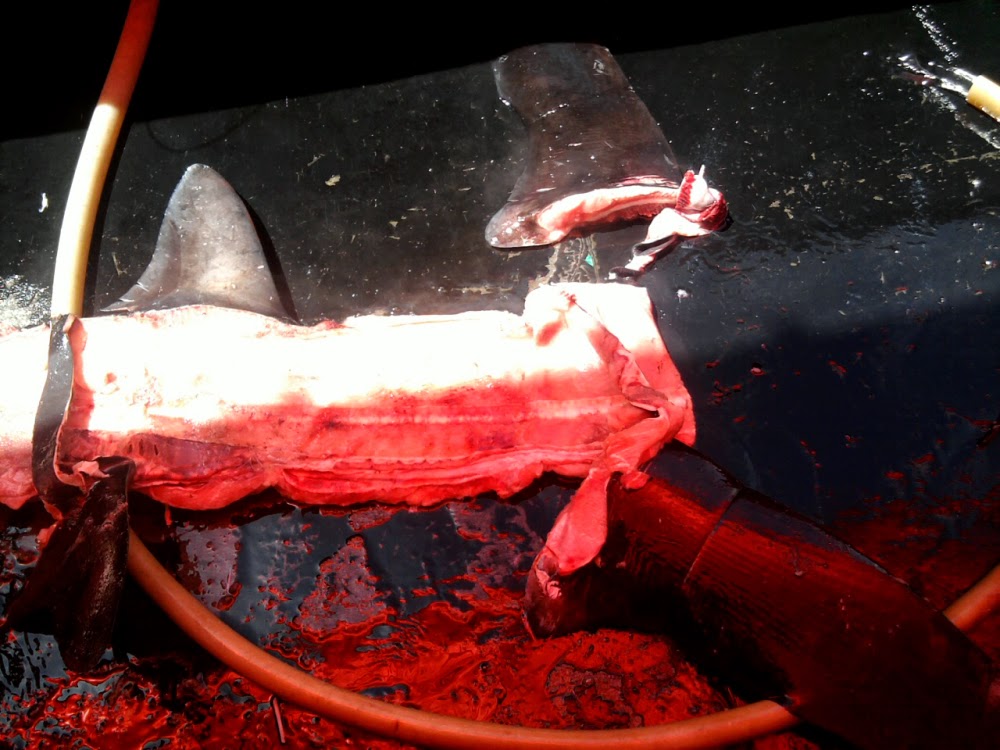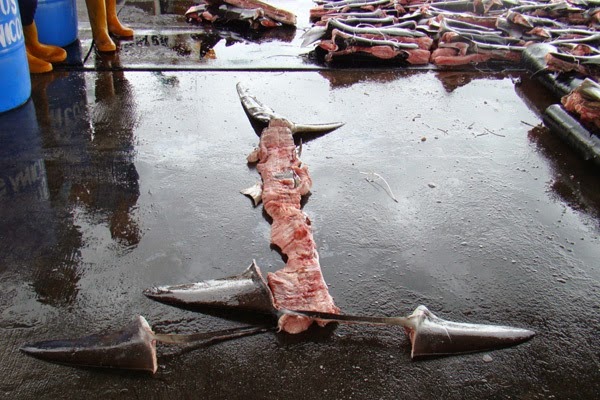 |
| Photo Credit: Pretoma |
In 2011, Tseng attempted to dock her boat with over 330 shark skeletons aboard, but only after submitting a query as to if what she had done was kosher. After docking, officials were ordered to destroy all fins that were only attached the spine, costing Tseng’s company thousands of dollars. After being arrested and charged with finning, conservationists warned Costa Rican officials that a not-guilty verdict would create loopholes that would allow the shark fin trade to begin flourishing in Costa Rica and under legal grounds. On Monday, Tseng was acquitted of charges due to the fact that she did not technically unload and sell the shark fins. Since the fins were seized at port, the judge deemed Tseng of not having committed a crime. Key eyewitnesses also backed out of testifying last minute for reasons not entirely clear.
 With this verdict, conservationists worry that the gates may have opened to legal shark finning. Fisherman may now arrive at port with shark fins as long as they do not unload them and some of them may even be able to get away with unloading the fins if they are still “naturally attached” via spining. “It’s another slap in the face of the conservation movement,” voices Randall Arauz, the current President of Pretoma, a Costa Rican ocean conservationst organization. “We are going out to the world showing ourselves as a world leader in shark-finning legislation, and then we show the world that when it comes to our domestic policies we are still ruled by the shark finning industry.”
With this verdict, conservationists worry that the gates may have opened to legal shark finning. Fisherman may now arrive at port with shark fins as long as they do not unload them and some of them may even be able to get away with unloading the fins if they are still “naturally attached” via spining. “It’s another slap in the face of the conservation movement,” voices Randall Arauz, the current President of Pretoma, a Costa Rican ocean conservationst organization. “We are going out to the world showing ourselves as a world leader in shark-finning legislation, and then we show the world that when it comes to our domestic policies we are still ruled by the shark finning industry.”




